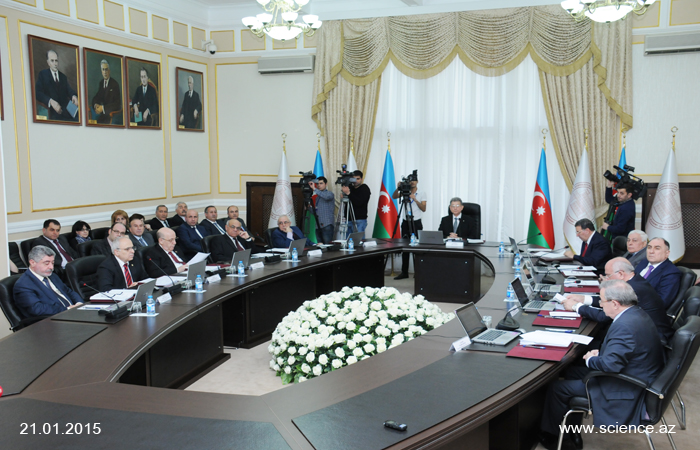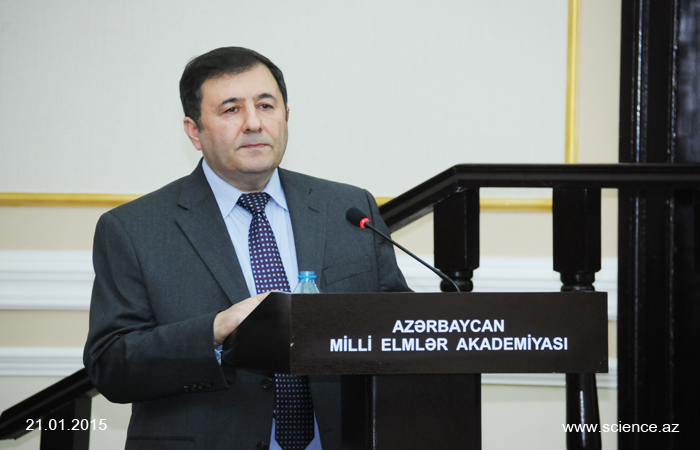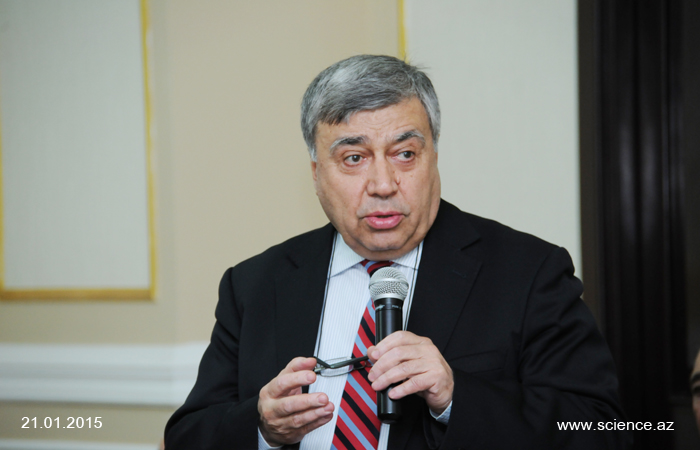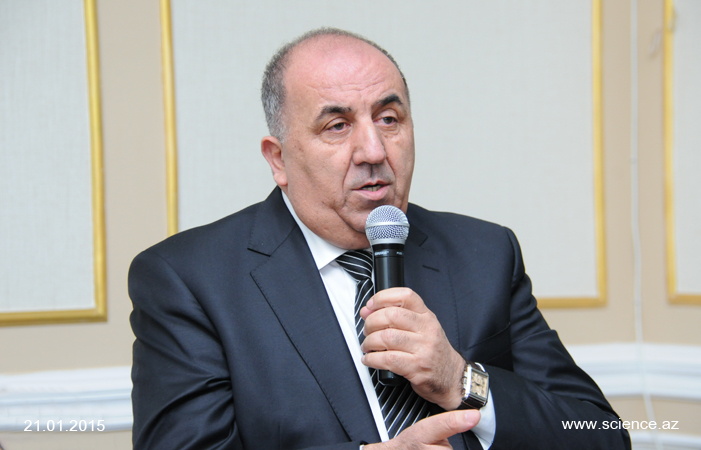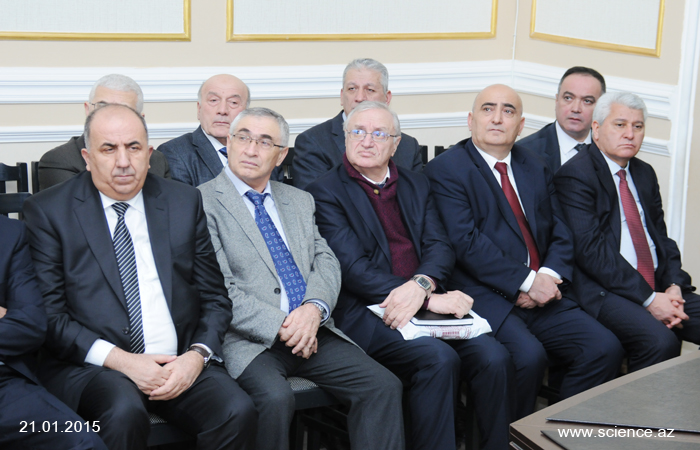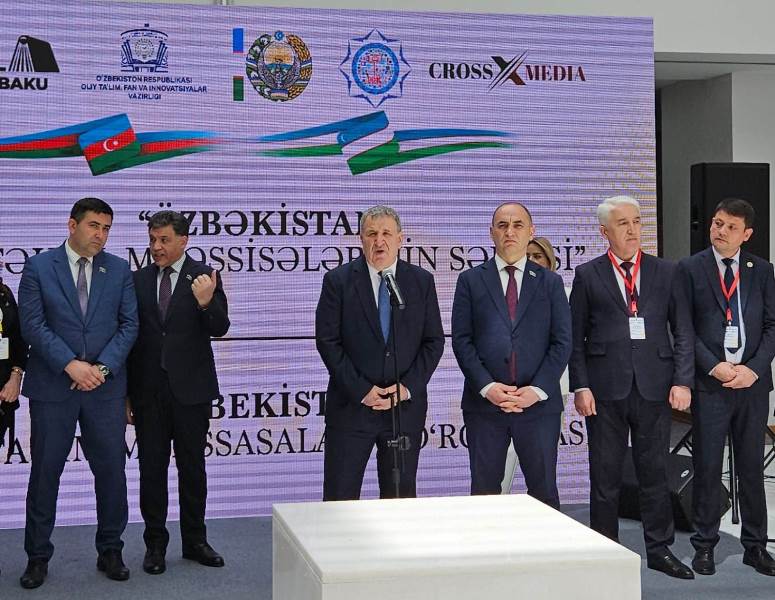- A-
- A
- A+
Molecular biotechnology providing sugar free protein synthesis elaborated
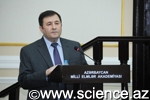
During a meeting of Presidium of ANAS former employee of the Department of fundamental problems of biological productivity of the Institute of Botany, working from 1998 to 2002 in Japan, and from 2002 to 2014 in USA, Professor of Akdeniz University (Turkey), corresponding member of ANAS Tarlan Mammadov made a report on “Synthesis of functionally active sugar free protein recombinant proteins of green plants for their use in medicine and industry”. T. Mammadov reported that amount received by marketing technologies of DNA protein preparations, including recombinant antibodies, vaccines, immune modulators and human enzymes in the next two years will exceed 100 billion USD. Now production of recombinant proteins of medical and industrial value is realized by means of a number of systems of an expression (a bacterium, yeast, fungi, insects, mammals, etc.). Currently, the production of recombinant proteins for medical and industrial value is realized by a series of expression systems (bacteria, yeast, fungi, insects, mammals, and others.). In recent years, for the synthesis of recombinant proteins are widely used plant expression systems, which in comparison with the other expression systems have several advantages. First of all plants are considered as the most perspective platform of an expression of recombinant proteins from the view point of economy and safety. The Herbal transient expression system first of all provides collecting hundreds a milligram of target proteins (a vaccine, an antibody and therapeutic protein) from 1 kilogram of biomass less than in a week, on the other hand, the recombinant proteins synthesized in plants don't contain the pathogens and toxins which are found in mammals. At the same time, the recombinant proteins synthesized in plants are exposed to post-transmitting modifications of eukaryotic type (phosphorylation, carboxylation, glycosylation, etc.) which are vital for functional activity of expressed proteins. Noted, that the molecular biotechnology providing synthesis of not sugar- free protein in all systems of an expression of eukaryotic type including systems of plants is for the first time developed for the solution of this problem. This strategy involves the enzymatic deglycosylation of proteins by recombinant bacterial expression mutual peptide-N-glycosidase F (PNGase F) under in vivo (within the cell). As a result of this process of a molecule of proteins are synthesized in the cage in N-non-glucan form. The elaborated technology created possibility of highly active synthesizing very important and it is difficult expressed complex proteins, vaccines and therapeutic proteins. In the end it was noted that the created new technology can be applied in all systems of an expression of eukaryotic type and recombinant proteins in these systems can be synthesized sugar-free (non-N-Glycosylated). Results of rather elaborated technology were presented as the plenary report in a number of the international conferences and published in with high impact factor - Plant Biotechnology Journal (2012) “, “Bioengineered (2013) “ and “ISB news report " (2013).
Information about elaborated technology was published in American news - “IBS news report”, “News RX”, “Report Linker”, as the most important example of innovation in the field of molecular biotechnology. The article, which was reflected this technology was published in the journal “Plant Biotechnology” and won first place in the top- 20 articles in the field of molecular biology and biotechnology (2012-2013).
In the discussion of the report was attended by academics Ahliman Amiraslanov, Adil Garibov, Vagif Abbasov and others.
©All rights are reserved. Citing to www.science.gov.az is necessary upon using news.
Similar News
Links
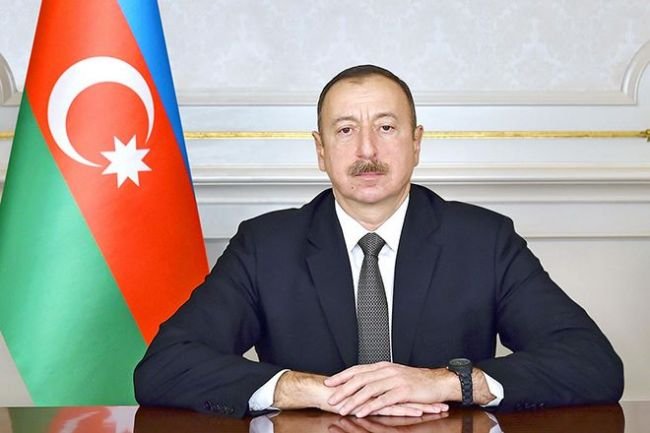
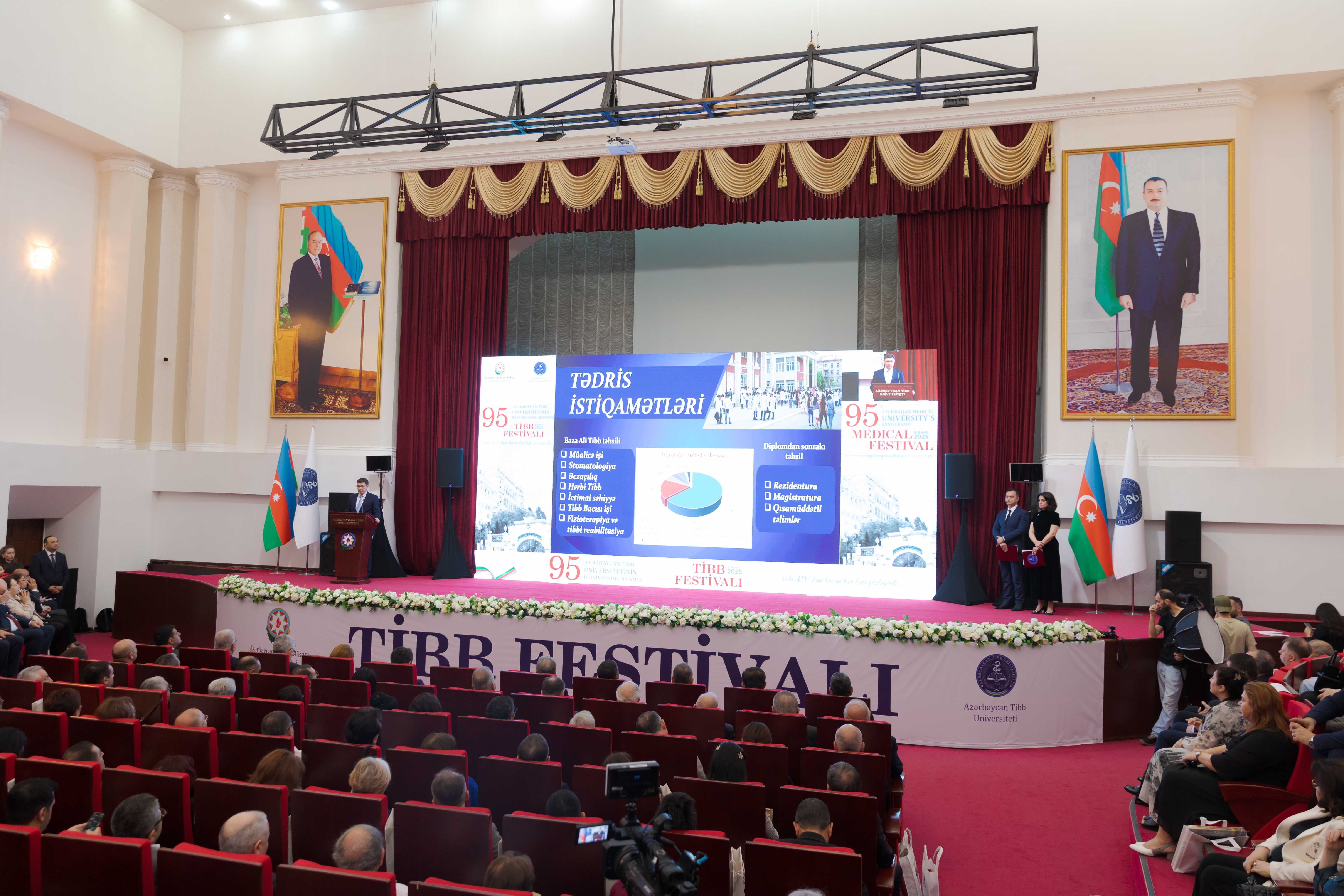

 Elm TV
Elm TV
 Photo
Photo
 Video
Video
